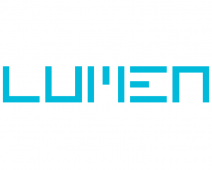How Blockchain Is the Future of the Gaming Industry
by Lindsay Rowntree on 27th Jun 2018 in News

Year after year, the gaming industry produces more advanced, high-specification games that require powerful hardware which, due to high prices, is not available for all gamers. This is a problem that is not surprising, writes Egor Gurjev, CEO at Playkey, exclusively for TheGamingEconomy.
If someone wants to play a game in its maximum settings, he or she will need to update their video card and it will cost additional USD$300-500 per year for a new model. This was an issue desperate for a long-term solution.
But what is the solution? Cloud gaming services, aka games that work through streaming services, mean gamers can finally play up-to-date titles using almost any existing hardware. With cloud gaming, gamers don’t need to save money for a new processor or video card, as they can play via the internet. Playkey is one of the cloud gaming pioneers. Our project was established in 2012 and, as of today, is one of the leaders in the cloud-gaming sphere – and we continue to prove our commerce efficiency and technology success. In recent months, there has also been a strong interest in the cloud-gaming sphere from giants of the market as well as the predictions that the consoles will soon become obsolete.
For a long time, cloud-gaming services were using expensive servers; now the majority have realised how they can scale up and do things differently by decentralising the platforms. This is best achievable through blockchain technology, thus making it the perfect addition to cloud gaming. As one of the most significant developments to run through the gaming industry for some time, the technology provides millions of gamers the opportunities to play the games they enjoy via a decentralised cloud-gaming ecosystem. Blockchain technology is ultimately turning the traditional sense of gaming on its head.
This works by working with owners of an upgraded gaming PC (for instance, with the GTX 1080 graphic card) who would be able to rent it to someone who doesn’t have the required hardware. Other gamers would have an access to this server for a low-budget cost. This technology will give users an opportunity to create more cloud servers, which will decrease the cost of that service. Eventually, the number of users willing to use it will grow as well. Playkey is one of just a handful of companies embracing blockchain technology in such a way and, therefore, is at the forefront of this paradigm shift. This exchange of service is beneficial to both parties: gamers no longer need to invest in expensive gaming consoles and gaming PCs and with the introduction of cryptocurrency, such as Playkey’s utility token PKT, 'miners' who rent out their hardware can receive payment for doing so.
Blockchain makes these payments a simplified process and, thus, creates a genuine means of income for those ready to embrace the technology. The fact that users bought their hardware for mining, or specifically for gaming, is not important for the service. Renting their computers to other gamers would be a more profitable way, compared to mining cryptocurrency that the world has gotten used to.
For Playkey specifically, the main reason why we created the decentralised ecosystem was to scale the business and expand it to new markets. And decentralisation is also an excellent tool to boost the growth of the infrastructure of our servers, inviting high-end PC owners to act as current servers.
Blockchain technology has the ability to offer security, transparency of the transactions, miners rewards, and management of game sessions. This technology moves the power to the user, as they are free to handle without mediators and they are protected by a smart contract. It provides gamers with more control and flexibility when it comes to their gaming experience and the entire process will become much more efficient.This content was originally published in TheGamingEconomy.com.







Follow ExchangeWire